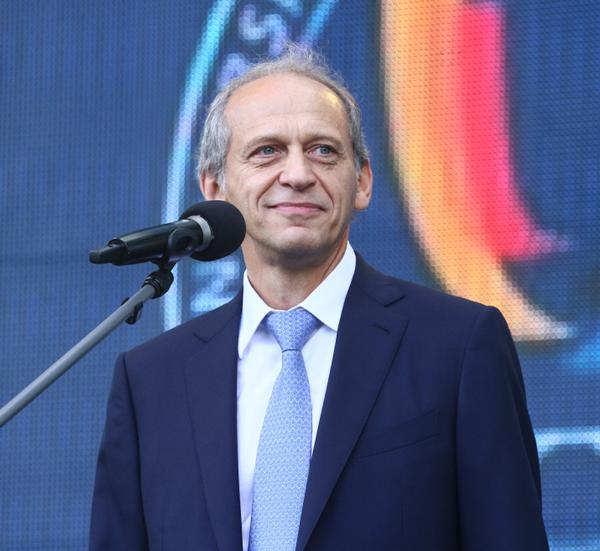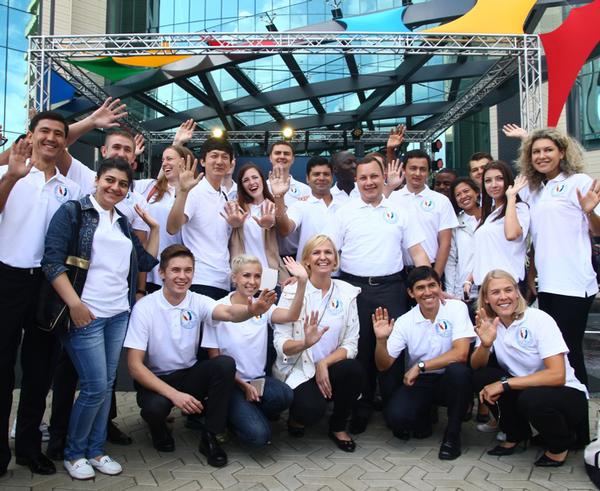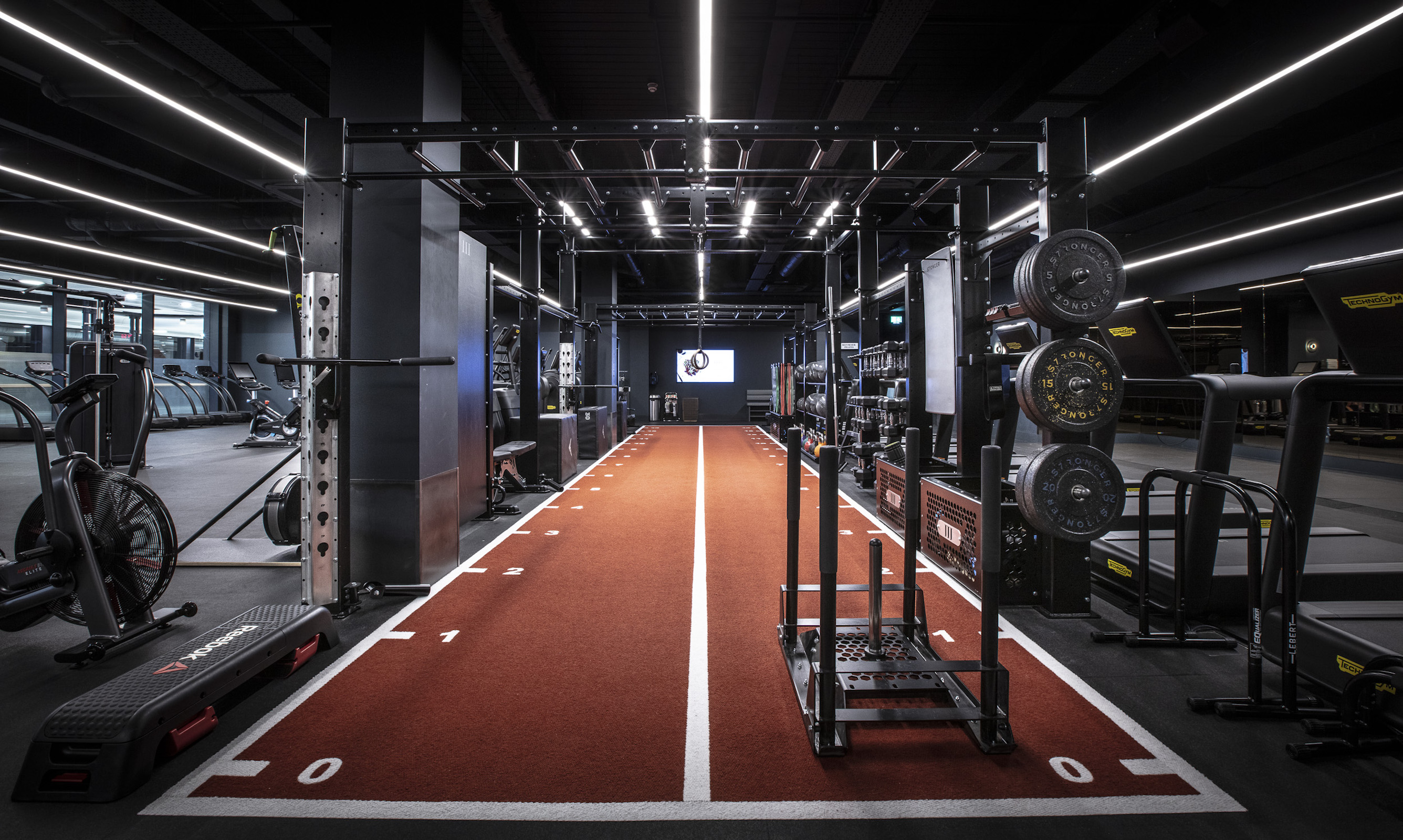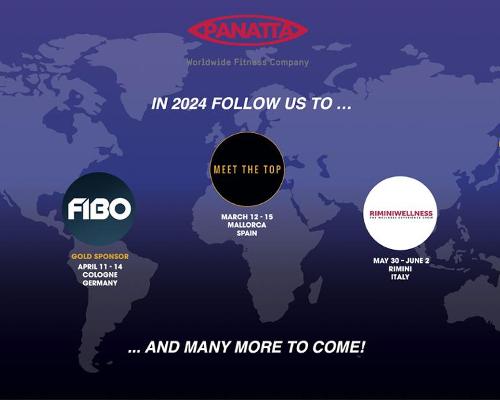Lev Belousov
Rector of the Russian International Olympic University

What is the Russian International Olympic University (RIOU) and when was it launched?
RIOU was established in October 2009 under a memorandum of understanding between the International Olympic Committee (IOC), the Sochi 2014 Organising Committee and the Russian Olympic Committee (ROC). It’s an autonomous, non-profit organisation founded by the Russian Ministry of Sport, the ROC, Sochi 2014 and private investment company Interros.
In 2010, the university began running training programmes for staff of Sochi 2014. The main educational product – the one-year Master of Sport Administration (MSA) course – was launched in September 2013.
Were you actively involved in setting up RIOU from the very beginning?
I took charge of RIOU in June 2010 at the initial stage of its development when there was neither a campus nor educational programmes in place. The main management task then was the organisation of the university’s working processes. As Sochi 2014 approached, RIOU started its educational activities by developing and implementing a range of exclusive educational programmes for the staff of Sochi 2014, Sochi City Administration and Olympstroy – the state corporation responsible for the construction of the Sochi 2014 venues.
What was the motivation behind RIOU?
The primary goal was to train the next generation of management professionals for the sports industry. As a legacy project of the Sochi 2014 Olympic and Paralympic Winter Games, we hope that many of RIOU’s graduates will go on to help develop the Russian sports market – but we are also determined to raise the level of sports management globally, particularly within the Olympic movement.
RIOU is also the proud guardian of the Sochi 2014 Archive: an invaluable bank of case studies and best-practice materials on every aspect of the Sochi 2014 preparations since 2007.
What are RIOU’s main activities?
It’s the world’s first university dedicated to sport business education and we offer unique programmes strongly connected with Olympic values and experiences. The principle focus is on training specialists in sports management and our programmes cover the main aspects of sport business education: venue and infrastructure management, competitions, mass communications, diplomacy and administration, sports law, security in sport and career management. As well as the MSA, we also run a wide range of short-term programmes in areas such as hospitality, barrier-free environments, economics, the management of sporting venues, sports law and sustainable development. Each year these courses attract more than 150 students from around the world.
What does your role as rector entail?
My key responsibilities include strategic planning, interaction with the founders and state structures and, of course, operational management.
The structure of the RIOU team is aligned with our strategic duties. I have four deputies (pro-rectors) who are responsible for managing the following areas: administration, government relations, organisation of academic work, and educational and research activities.
What makes RIOU unique?
A lot of university sport-related programmes focus on narrow areas within management, such as administration or law or by specialising in a single sport only, but our model combines a traditional university curriculum with features commonly found on a career development programme. This broader approach allows us to provide high quality training in sports management to candidates from a wide range of backgrounds. Many of our students have sport-related degrees on their CVs already but we’re open to suitably qualified applicants of any experience. By casting the net wider, we produce more versatile sports managers as there will be a greater mix of ideas among the student community.
Who will RIOU be marketed at?
Our target audience are young professionals at sporting organisations looking to take their career to the next level. This means people working or volunteering with national Olympic committees or sports federations. But it also means people from sports clubs and marketing and communications agencies. We also encourage athletes looking to negotiate a career transition.
How will you utilise RIOU’s relationship with Sochi 2014?
Mainly in two ways. Firstly, our lecturers and students have access at any time to documents relating to Sochi’s staging of the Winter Games through our Sochi 2014 Archive. These documents are accessible in hard copy and digital and consist of audio, photo and video materials as well as best-practice case studies of the Organising Committee’s operations for Sochi 2014.
Secondly, thanks to the Games, Sochi’s sporting infrastructure is world-class and means that our students have real-life examples of how venues can be utilised for the benefit of the local population after the Games are over.
During the Games, we also carried out a detailed survey of more than 200 athletes and representatives of the media to collect valuable feedback on how these groups perceived different aspects of the planning and staging of the Paralympic Winter Games. This survey was compiled by our first intake of MSA students as part of their observer and participation programmes during the Games.
How important will it be for future Games bids to include legacy plans?
There is certainly no doubting that the IOC has underlined the importance of sustainability and legacy for any city thinking about hosting an Olympic Games. Whether a city is representing a developing or a developed country, it will have to prove that it can implement effective legacy projects if it wants to host the Games. Developing nations naturally have less sporting infrastructure so may have an advantage in being able to show the IOC that the legacy projects attached to the bid will enhance more lives in a more dramatic way than in a developed nation. It will certainly be interesting to see how legacy influences the future bidding process.


Team Leader (Harrow School Fitness Club)
Centre Manager (Leisure)
Director of Operations
Fitness Motivator
Recreation Assistant/Lifeguard (NPLQ required)
Membership Manager
Recreation Assistant
Swim Teacher
Swim Teacher
Chief Executive Officer, Mount Batten Centre
Swim Teacher
Swimming Teacher
Swimming Teacher
Company profile

Featured Supplier

Property & Tenders
Company: Knight Frank
Company: Belvoir Castle
Company: AVISON YOUNG
Company: London Borough of Bexley
Company: Forestry England














